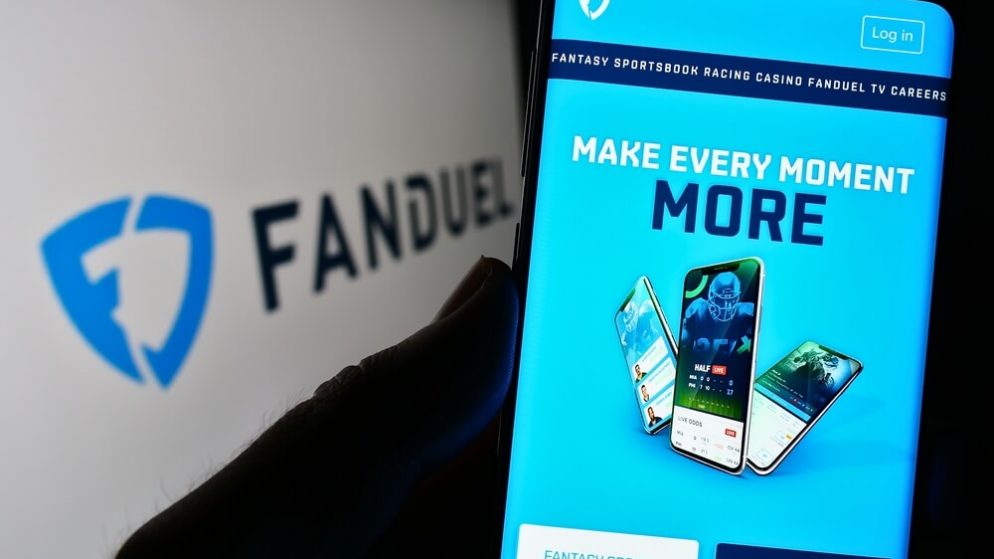

Illinois boasts one of the most established sports betting markets in the country. In this highly competitive gambling landscape, 2 major players have emerged as dominant; FanDuel and DraftKings. Together, the 2 sportsbooks control more than 60% of the market, leaving the remaining operators to battle each other for the residual 40%.
Since in-person and online sports betting in Illinois was approved in June 2020, the market has grown from strength to strength to become a force in the country. Last year, the state became the 2nd largest sports betting market in the country, just behind New York.
Sportsbooks in Illinois have already exceeded the $1 billion in gross gaming revenue goal for online betting since sports betting debuted in the state. When looking at the total amount wagered, DraftKings emerges as the king of sports betting in the state. Boasting more than $6.8 billion in bets, DraftKings enjoys an impressive 33.2% market share.
FanDuel follows closely behind, with a 27.3% market share, owing to approximately $5.6 billion in wagers. As far as the revenue is concerned though, FanDuel takes the crown. FanDuel controls 37.3% of the market enjoying more than $600 million in lifetime revenue. DraftKings takes up position 2 of the revenue spot thanks to its close to $420 million, resulting in a 26% revenue share.
While DraftKings and FanDuel dominate the market, additional operators in Illinois have also worked hard to carve out their share of the pie. For instance, BetRivers, which is a local sportsbook, holds a solid third position. Since sports betting was launched in the state, BetRivers has accumulated more than $3.3 billion in the handle and produced income of almost $268 million.
This means that BetRivers now accounts for 16% of the combined handle and 16.6% of the total revenue. When the top 3 sports betting operators in Illinois are combined, BetRivers, FanDuel, and DraftKings capture more than 75% of the legal sports betting market in the state.
The remaining 4 sportsbooks in the state, namely PointsBet, Barstool, Caesars, and BetMGM control the remaining 25% of the market. PointsBet, for instance, holds a 7.7% handle share. It also boasts over $1.5 billion in lifetime handle making it the 4th largest operator in Illinois.
Since launching, PointsBet has produced revenue of more than $117 million, constituting 7.3% of the total revenue. BetMGM, Carsars, and Barstool hold between 13 and 16 percent of the Illinois market combined.
What we cover
Circa sports entry won’t be easy
With the top 3 operators controlling the majority of the market new operators typically face difficulties when trying to carve out their share of the market. In particular, new entrants such as Circa Sports have a long road ahead in the quest to establish themselves as market leaders.
Just recently in April, Circa Sportsbook came one step closer to becoming the 8th online sportsbook in the state when it received approval from the Illinois Gaming Board. Circa announced that it had partnered with Full House Resorts to gain entry into the market. The Las-Vegas based operator will now offer mobile sports betting in the 6th largest state.
It will also run a retail sportsbook at the upcoming American Place casino hotel located in Waukegan. The temporary casino at American Palace has been operational for a few months now. However, it must still go through a probationary period to earn a nonrestricted casino license.
In Vegas, Circa already operates retail sportsbooks at its venue downtown, as well as at the D and Golden Gate casinos. Circa also operates the Pass Casino in Henderson and the Tuscany Suites. Last year, Circa debuted new casinos in Northern Nevada at the Legends Bay Casino in Sparks.
It also runs mobile sports betting operations in Iowa and Colorado. Throw in its newest operations in Illinois and it marks 4 states. In the future, Circa is keen to enter its home state in Michigan, as well as additional markets in Ohio and New Jersey. Owing to the favorable sports betting tax rates and proximity to Nevada, Circa may also be interested in entering Arizona in the future.
Despite its ambitious plans, Circa is still a relatively small brand compared to more established sports betting powerhouses such as FanDuel and DraftKings. Although there is still lots of room for growth in the Illinois sports betting market, new entrants such as Circa have a long road ahead and must contend with more dominant operators.
The established sportsbook operators that we have discussed above all enjoy strong brand recognition, massive and loyal customer bases, and considerable financial resources that all help to give them a competitive edge.
Plus, the cost of entry into the Illinois market continues to pose considerable hurdles for new entrants like Circa. The licensing fees for new operators, particularly those without existing retail casino connections, can be prohibitively costly. This financial barrier has continued to limit the number of potential entrants as it favors larger, more financially capable operators that can afford the hefty fees upfront.
Circa will find it even harder to break through the market saturation thanks to the extensive marketing campaigns and customer loyalty programs of the other existing major players. These operators have had years to build trust and credibility among punters in Illinois, which is where Circa’s industry reputation will play a vital role.
Although Circa is clearly the smaller brand and lacks widespread recognition and resources to oust its biggest competitors, the good news is that the brand still has a lot to offer. For instance, Circa’s unique selling proposition of catering to big gamblers and supplying unrestricted gambling may attract niche market segments.
Final Thoughts
Despite these challenges, the sports betting market in Illinois is still evolving rapidly and there are still lots of opportunities for new entrants to carve out opportunities for themselves. As the market keeps maturing and consumer preferences advance, there may be room for ground-breaking approaches and differentiation strategies.
If smaller or newer operators want to succeed in Illinois, they must carefully assess their competitive advantages and be prepared to deal with mounting competition from established titans.






